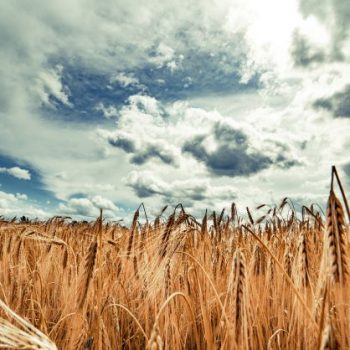
Agrochemicals such as synthetic fertilisers and fungicides are extensively used to improve yield and fight plant pathogens. Synthetic fertilisers are mainly composed of nitrogen, phosphorous and potassium compounds to help improve plant growth and yields. To produce synthetic fertilisers, we rely heavily on our natural resources which are depleting over time, and on exhaustive industrial processes. Our continued use of agrochemicals, including fertilisers and fungicides, can lead to water pollution and causes numerous environmental problems. As well as this, fungicides can lose effectivity with prolonged use, developing resistance in plant pathogens and causing an imbalance in ecosystems that could also impact human health. The agriculture industry is facing a big challenge to continue producing enough food for the world population without disrupting the environment. By adding indigenous microbes to agricultural practices to improve productivity, we could solve this challenge and minimise the impact on other ecosystems.
Since my childhood, I have always had a passion for science and a determination to find the best possible solutions to address the environmental challenges we are facing. I was inspired by the potential of microbes and how these tiny organisms can influence all biological processes. Not only did this lead me to a doctorate degree in microbiology, but it also fuelled my career choice. I joined FA Bio in 2018 and am currently the R&D lead, studying microbes for their potential to be developed into agricultural bioproducts.
Over the past decade, I’ve had the opportunity to work with different microbial systems including fungi, bacteria, and viruses, and I am fascinated by their potential. We know that microbes have an interdependency with all living things, including plants, and even though they have a history of usage in agriculture, their potential is yet to be discovered. By utilising this opportunity to study and select superior microbes, we can reveal their potential to replace their chemical counterparts and find sustainable agricultural bioproducts, reducing the impact on climate change and producing safer foods.
At FA Bio, we believe the way forward is to work together to bring successful sustainable bioproducts to the forefront. As well as using our own patented technology, SporSenZ, for bioprospecting active microbes from soils, we also implement the latest available technologies and invent newer ones to facilitate our discovery. This approach is unique and by doing so, we are increasing the chance of identifying the right active microbes to improve plant and soil health and promoting the discovery of bioproducts, with more success in a shorter time.
There are several key drivers for the use of bioproducts in agriculture including regulations, consumers and chemical resistance, but most importantly, the global environment. The production, transportation, and use of synthetic fertilisers directly contribute to the high levels of global greenhouse gas emissions, most notably carbon dioxide and nitrous oxide. Our strategy of using technology to discover and develop crop-specific soil microorganisms, allows us to harness nature’s own microbial responses to different environments, which is something not possible using synthetic fertilisers and fungicides. This enables growers to increase their agricultural yields whilst minimising their environmental impact.
To address the challenge of climate change, the agriculture industry needs to push forward and embrace newer innovations that can help produce enough food without destroying our ecosystems. A consortium of innovation and international partnerships working together could help discover solutions for all the current challenges faced by the agriculture industry. Policymakers, scientists, innovators, and farmers should all come together to ensure solutions are delivered and ensure new technologies reach every farmer. By shifting our classical way of disrupting the agroecosystem and learning to reinvent technologies, we can build more resilient ecosystems and efficiently produce enough food for the world whilst preserving it for the generations to come.

Vijayalakshmi Gunasekaran PhD, R&D Lead at FA Bio


